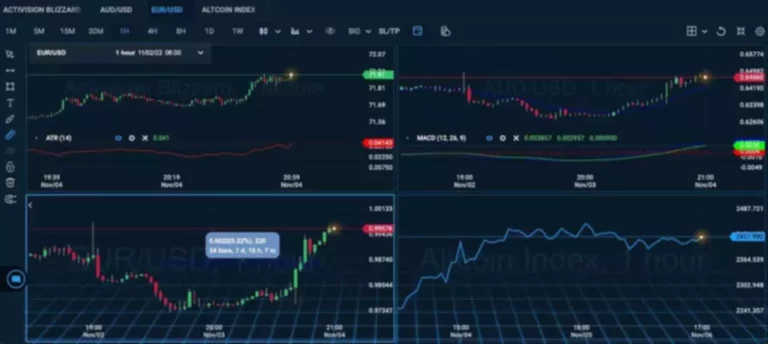Requiring collateral ensures individuals can fulfill obligations, lowering default threat and enhancing stability. When brokers aren’t sure if their anticipated trade value will mirror the executed worth, they turn into less hesitant to interact the market. The international trade market (forex) entails high-volume CFD trades throughout the globe. It’s some of the diverse and liquid markets out there to brokers and high-net-worth individuals. For example, when you contribute $10 USD price of assets to a pool that has a complete price of $100, you’ll receive 10% of that pool’s LP tokens. You receive 10% of the LP tokens because you own 10% of the crypto liquidity pool.
Public disclosures, regulator accountability, and clear dispute channels all sign long-term viability. Regulated providers are additionally easier to work with when entering new jurisdictions. Many brokers now keep away from unlicensed LPs altogether, especially when onboarding institutional purchasers or integrating fiat gateways. LPs stream executable bids and offers, absorb move, and handle exposure behind the scenes. The whole workflow is pushed by low-latency techniques built for throughput, scale, and precision.
They make it possible for brokers to supply prompt commerce execution with minimal slippage, no matter whether there’s a natural counterparty on the other aspect. By keeping monetary products persistently out there in the market, liquidity providers ensure that traders can buy and sell any amount of belongings at any second for a mutually agreed value. Additionally, brokers can enhance commerce execution speeds by partnering with multiple liquidity suppliers and providing aggressive spreads in consequence. By doing so, liquidity suppliers reduce the value of trading for investors and merchants, in addition to scale back the potential for value manipulation and market inefficiencies. This pivotal function underscores the significance of liquidity suppliers in upholding the integrity and performance of economic markets throughout the globe.
These buying and selling facilitators hold inventories of one or more liquidity provider vs market maker belongings or monetary instruments, and stand prepared to satisfy purchase or sell orders as they arrive in. This allows markets to maintain shifting by guaranteeing that a buyer or vendor can at all times do enterprise. When you’re trading, shopping for, or promoting any sort of monetary asset, it’s the Liquidity Provider that makes certain you’ll be able to execute your trade quickly and at a good worth.
Platforms like Uniswap make use of algorithms to price belongings primarily based on the pool’s token ratio, ensuring steady liquidity so lengthy as assets remain in the pool. Nonetheless, they carry dangers like impermanent loss, where liquidity suppliers could lose value as a outcome of value fluctuations. Methods like diversifying holdings or hedging can help mitigate these risks.
Market Makers are obliged to cite each a buy and a sell worth in a financial instrument or commodity, basically making a marketplace for that instrument. Trading Futures and Options on Futures includes a substantial risk of loss and isn’t suitable for all traders. You should carefully consider whether trading is suitable for you in gentle of your circumstances, data, and monetary sources.

The LLC will begin impartial trading for Abu Dhabi Ports inside shared parameters and in adherence to regulatory pointers from Might 2024. Al Ramz is a licensed market maker on the Dubai Monetary Market and Abu Dhabi Securities Change (ADX). Thus, learning concerning the international laws that influence liquidity supplier operations is crucial. By now, you should know the significance of partnering with a foreign exchange liquidity supplier. As you’ll find a way to see, liquidity companions that maintain asset classes are extra reliable in the lengthy run. Liquidity providers hold massive amounts of an asset, which suggests it is readily available for buying and selling at a stable price while serving to to avoid slippage.
Automated Market Makers

Understanding the advantages that liquidity suppliers convey to the table is important for appreciating their pivotal function in sustaining sturdy and orderly markets. Moreover, liquidity suppliers are adept at managing danger, using refined buying and selling strategies and applied sciences to mitigate potential market volatility and price fluctuations. Their proficiency in navigating the complexities of financial markets permits them to maintain a balanced portfolio while fulfilling their function as suppliers of liquidity. When it comes to the world of finance, the time period “liquidity provider” holds vital weight. Whether Or Not you may be an investor, dealer, or monetary establishment, understanding the position and influence of liquidity providers is essential.
- Becoming a profitable liquidity provider (LP) is a multifaceted journey that requires a deep understanding of economic markets, risk management, and technological infrastructure.
- For occasion, a Treasury bond with a 2% haircut permits a borrower to obtain barely less cash than the bond’s worth, defending the lender against worth declines.
- Not all liquidity providers are the same, nor do they serve the same sort of client.
- Liquidity providers act as intermediaries between the institutions that concern an asset and the shopper, similar to a day trader.
A core liquidity supplier is a financial establishment that acts as a go-between in the securities markets. These establishments purchase giant volumes of securities from the companies that problem them and then distribute them in batches to monetary corporations, which is ready to make them available directly to retail buyers. Fortuitously, liquidity suppliers can prevent flash crashes or excessive volatility. Liquidity ensures consumers and sellers can shortly close positions, creating a good buying and selling surroundings for everybody. The decentralized nature of blockchain technology makes it potential for financial establishments to use good contracts to gather valuable property and construct deep liquidity swimming pools.
LP tokens are mathematical proof that you just supplied assets to a pool — and LP tokens maintain the declare to getting those belongings back. With liquidity provider tokens, the same tokens may be utilized a quantity of times, even when they’re invested in a DeFi product or staked in a platform governance mechanism. LP tokens assist clear up the issue of restricted crypto liquidity by opening up an oblique Proof of identity (blockchain consensus) type of staking, one where you prove you personal tokens instead of staking the tokens themselves.
One of the defining traits of a liquidity supplier is their ability to inject liquidity into the market by providing to purchase or sell property at quoted costs. By minimizing this spread, liquidity providers contribute to market effectivity and enable merchants and buyers to execute transactions with larger ease and at fair costs. In decentralized finance (DeFi), pool operators handle liquidity pools, which allow trading without conventional intermediaries. These pools include funds deposited by multiple buyers, who earn a share of transaction charges. Platforms like Uniswap and Balancer use algorithms to discover out pricing and execute trades effectively.
Promoting Market Depth
This is especially essential for assets with low buying and selling volumes or those which would possibly be https://www.xcritical.com/ less incessantly traded. Liquidity suppliers play an important function in monetary markets by guaranteeing the graceful functioning of buying and selling activities. These entities, which may be individuals, establishments, or even automated methods, facilitate the shopping for and promoting of assets by offering a prepared provide of tradable devices. Liquidity suppliers are motivated by the potential to profit from the bid-ask spread, which is the distinction between the shopping for and promoting prices of an asset. In essence, liquidity providers are not solely facilitators of market liquidity but also guardians of market stability, taking part in a crucial role in upholding the integrity and effectivity of financial markets. They repeatedly quote bid and ask prices for a selected asset, making a market for patrons and sellers.
This category consists of world funding banks that have direct entry to the interbank market—think names like JPMorgan, Citi, or Deutsche Financial Institution. Their infrastructure is battle-tested, their pricing ultra-tight, and their depth unmatched throughout FX and traditional asset courses. LPs repeatedly stream two-sided prices (bid/ask) throughout all related venues.
How Liquidity Suppliers Facilitate Market Efficiency?
This mechanism ensures that property may be bought or sold important pricing fluctuations. They quote the buy and promote prices of property in a market, ensuring that there are sufficient swimming pools of assets to accommodate consumers and sellers, thus making certain consistent and environment friendly buying and selling. Before becoming an LP, it’s important to grasp market dynamics and have a threat management technique in place.
